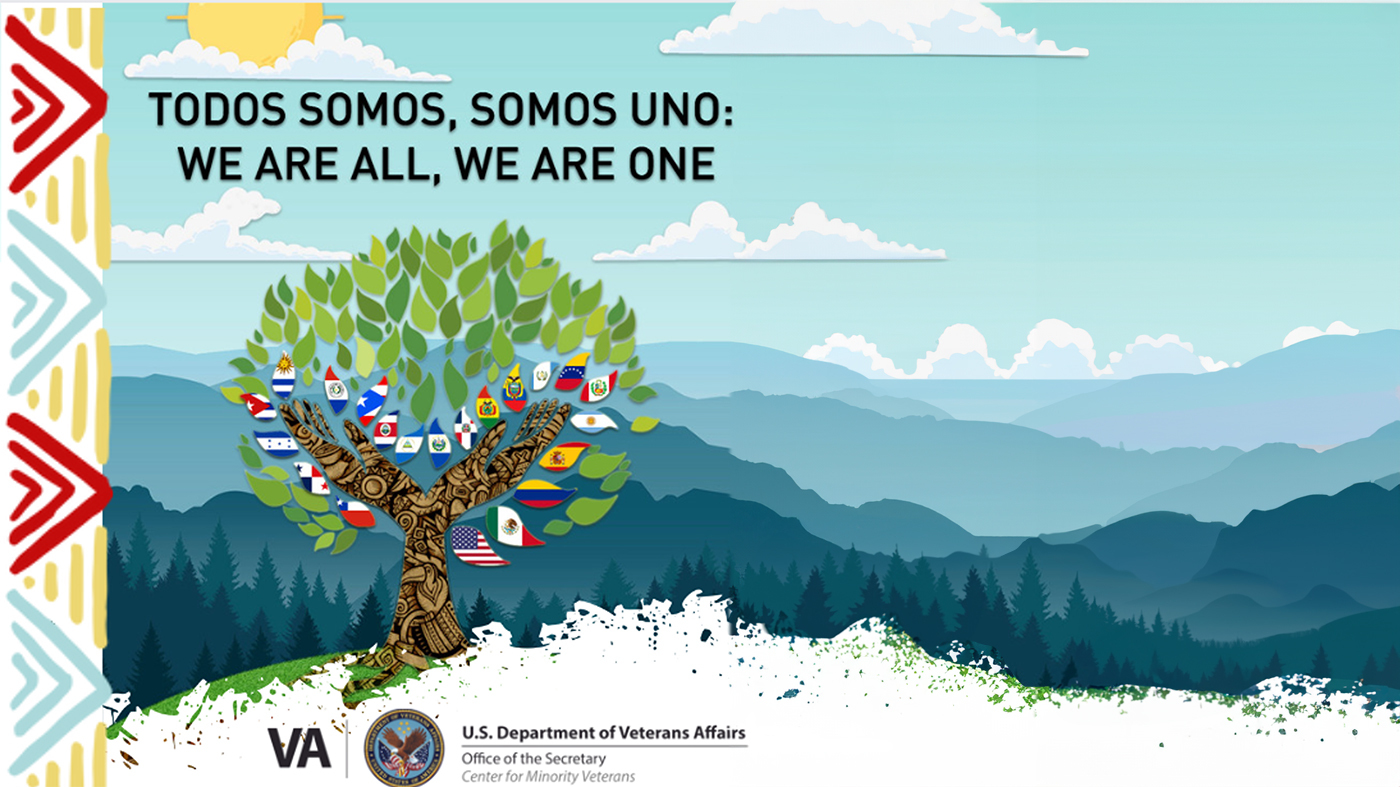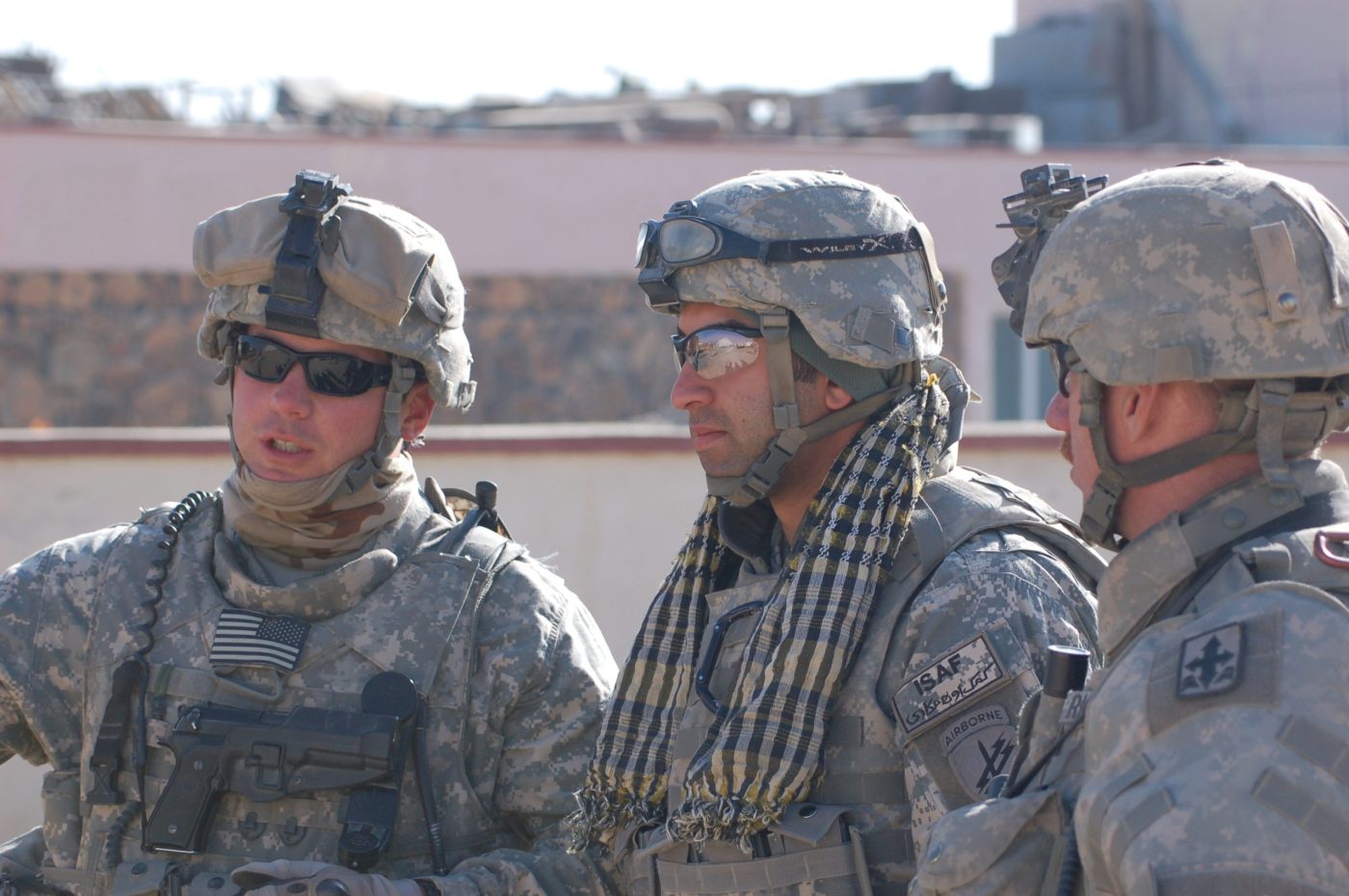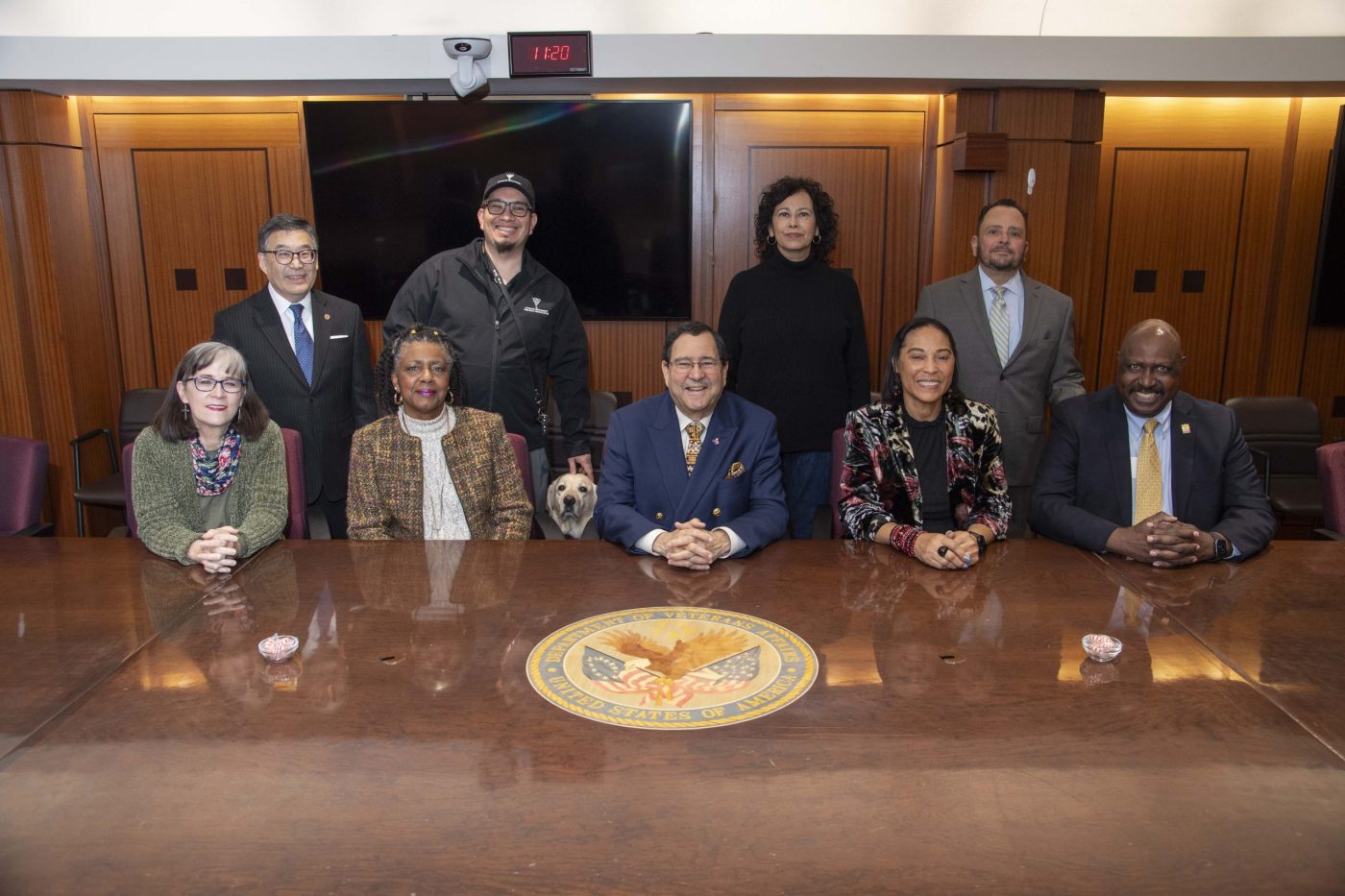Over the past month, the Center for Minority Veterans hosted a five-part webinar series commemorating the contribution of Hispanic/Latino Veterans to our nation’s defense. Through this series, we reached over 1,000 Veterans, their families, caregivers and survivors. We also took the opportunity to share important developments in VA benefits and services, such as the PACT Act, mental health and suicide prevention, and an update from the Office of Health Equity.
Most importantly, we were inspired by the personal journey of many of our heroic Hispanic/Latino colleagues. A few of the many incredible speakers included:
- Col. Lisa Carrington Firmin, who retired from the Air Force as its most senior ranking Latina officer. She now shares her experience of overcoming prejudice and healing from TSD, trauma, hardship and combat through her poetry, leadership and advocacy for underrepresented populations.
- Dr. Ricardo Roa, a VA physician who shared the story of his 90-year old father who immigrated from Nicaragua and overcame challenging bureaucratic obstacles to become a U.S. citizen specifically to serve in the military.
- And Tahina Montoya, an Air Force Veteran who has worked various missions at the tactical, operational and strategic levels in over nine countries, including deployments in support of Operation Iraqi Freedom and Operation Enduring Freedom.
During the month, we also learned about the myriad of non-governmental organizations working with Hispanic/Latino Veterans, including the American Latino Veterans Association and the Warrior GMR Foundation. Both groups shared with us their unique approach to building community, mentoring, supporting Hispanic/Latino Veterans, and recognizing their indispensable contributions. For the first time ever, we opened our outreach to interagency partners who offer invaluable benefits and services to Veterans, including the Department of Justice
and the Small Business Administration.
Overall, we hope that this month offered a place for our Hispanic/Latino colleagues and friends a place to be together—celebrating and reflecting on the legacy of our shared culture—while offering valuable resources and information to our community. We are eternally grateful to everyone who participated and joined us.
¡Todos Somos, Somos Uno!
Topics in this story
More Stories
VA is committed to providing safe, accessible care that meets the unique challenges faced by black mothers.
Army Veteran and VA employee Umar Awan writes about his experiences at war in Iraq and fasting during Ramadan.
For the first time in nearly three years (due to the global COVID-19 pandemic), the Advisory Committee on Minority Veterans (ACMV) was able to meet in person.







Why a need to celebrate one’s heritage by setting aside a Month?
My heritage is Acadian/Cajun French(Louisiana/ Evangeline; A Tale of Acadie is an epic poem by the American poet Henry Wadsworth Longfellow, written in English and published in 1847 which unlike many of the ‘celebrated month’ is a culture that is diminishing over time. Where as many of the others are flourishing so well that they have national recognition!
Here is a ‘readers digest’ version of their history:
The Expulsion of the Acadians, also known as the Great Upheaval, the Great Expulsion, the Great Deportation, and the Deportation of the Acadians (French: Le Grand Dérangement or Déportation des Acadiens), was the forced removal, by the British, of inhabitants of parts of a Canadian-American region historically known as Acadia, between 1755 and 1764. The area included the present-day Canadian Maritime provinces of Nova Scotia, New Brunswick, and Prince Edward Island, and the present-day U.S. state of Maine.[b] The Expulsion, which caused the deaths of thousands of people, occurred during the French and Indian War (the North American theatre of the Seven Years’ War)[c] and was part of the British military campaign against New France.
The British first deported Acadians to the Thirteen Colonies, and after 1758, transported additional Acadians to Britain and France. In all, of the 14,100 Acadians in the region, approximately 11,500 were deported, at least 5,000 Acadians died of disease, starvation or shipwrecks. Men, women and children were forcibly removed from their homes and their land, which they had farmed for a century. Their houses were burned and their land given to settlers loyal to Britain, mostly immigrants from New England and then Scotland. The event is largely regarded as a crime against humanity, though modern-day use of the term “genocide” is debated by scholars.[7][d] A census of 1764 indicates that 2,600 Acadians remained in the colony having eluded capture.[9]
When will a month be set aside to celebrate my lost and dying culture who suffered many of the same sufferings as many of the other celebrated cultured?
I don’t have the clout nor the political influence to launch a campaign to set aside a month to celebrate my culture.